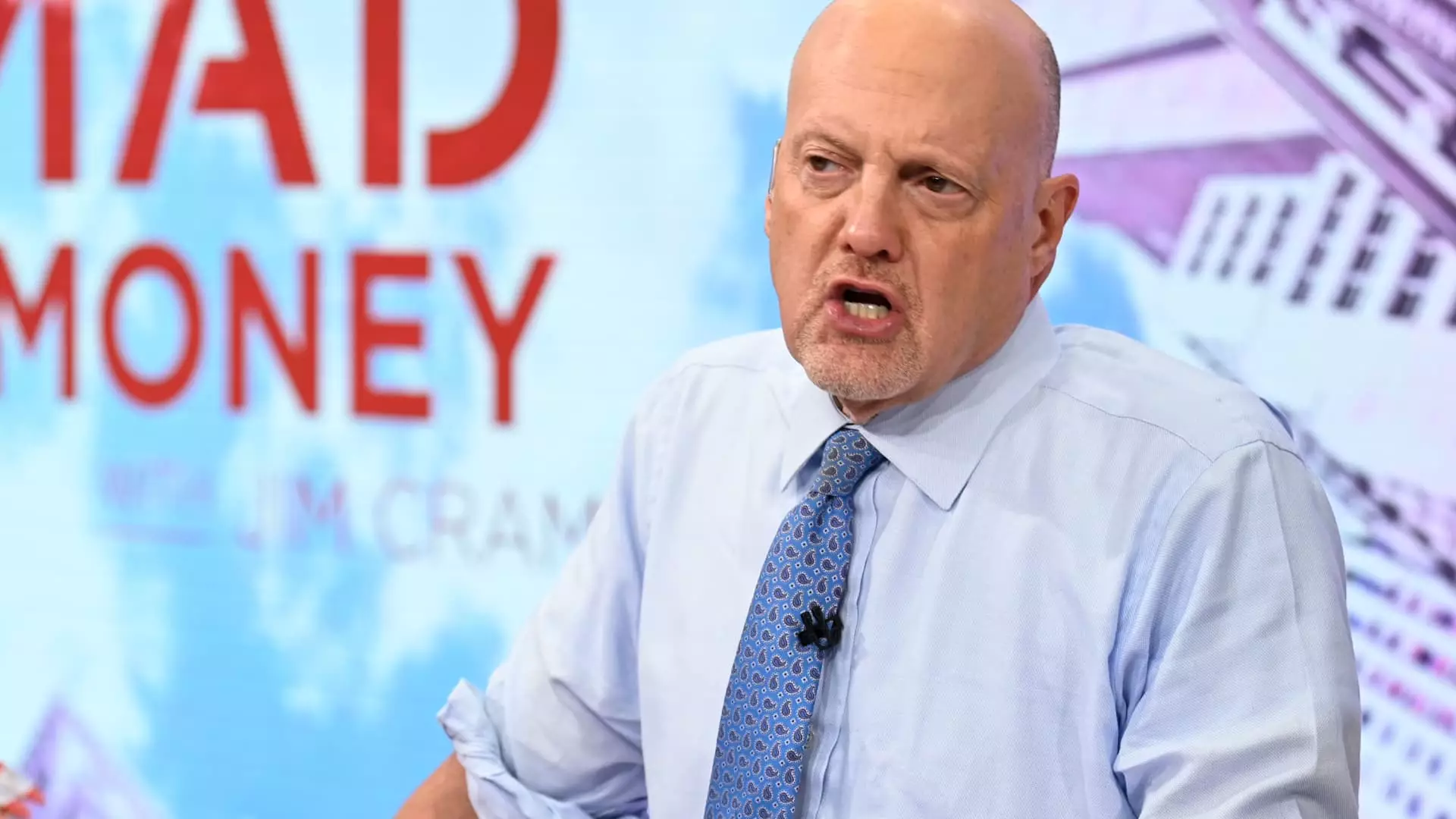In the realm of finance, volatility is a dreaded yet familiar beast. President Donald Trump’s recent imposition of new tariffs sent shockwaves through global stock markets, triggering fears reminiscent of past economic crashes. The concerns of investors are palpable; each tick of the stock ticker is laden with uncertainty, and industry leaders brace for the fallout. CNBC’s Jim Cramer asserted that the forthcoming earnings reports will shed light on how companies are grappling with this unfolding crisis. But herein lies the conundrum: no matter what figures emerge, the true trajectory of the market hinges precariously on Trump’s next decision.
The chaos in the stock market is not just a momentary flicker; it harbors the potential to spiral into a prolonged downturn. Cramer warns that if the President remains obstinate, refusing to ease pressures on trading partners, the market might find itself on a collision course with disaster akin to Black Monday in 1987. It’s a chilling reminder of history’s capacity to repeat itself, especially under leadership steeped in controversy and unpredictability.
The Earnings Forecast: Doom or Opportunity?
As we anticipate earnings reports, a significant player on the roster is Levi Strauss. The denim giant caters to a diverse global market, including Japan and Mexico—countries potentially reeling under the weight of tariffs. Cramer emphasizes that past weak projections have already punished Levi’s stock, and the pressure is on for positive guidance this time around. Yet, could this be an opportunity? Perhaps other retailers like PVH, which recently posted robust earnings, might inspire optimism in Levi Strauss’s figures too.
The week progresses ominously with earnings from Walgreens and Cal-Maine Foods. Walgreens, fresh off a $10 billion buyout announcement, may have a double-edged sword to navigate. How will its transition to privatization shield it from economic turmoil? Meanwhile, Cal-Maine has the potential to evoke conversations on egg prices, which spiked earlier this year, painting a more nuanced picture of market demand amid rising inflation.
Air Travel and Alcohol: Barometers of Economic Health
The market awaits Delta Air Lines results on Wednesday, a critical barometer for the travel industry. Cramer suggests that despite a revised, more conservative outlook in previous reports, any positive earnings will still provide crucial insights into consumer confidence and travel patterns. Moreover, Constellation Brands’ performance will be closely analyzed—especially as tariffs on Mexican imports loom ominously over its profits. Alcohol brands thrive on consumer sentiment, making them a direct reflection of fiscal robustness or fragility in the consumer economy.
The palpable tension surrounding these earnings exists in tandem with the release of the consumer price index. The Bureau of Labor Statistics will unveil inflation data that is increasingly sticky, complicating the Federal Reserve’s potential moves. This interplay will paint an intricate picture for investors, presenting them with a grueling paradox: should the Fed strive to lower interest rates amid rising consumer prices triggered by tariffs, or adhere to the traditional economic tenets that could stifle growth?
The Banking Sector: A Risky Proposition
Come Friday, the spectacle escalates as asset managers like BlackRock, alongside major banks such as JPMorgan Chase, Morgan Stanley, and Wells Fargo, reveal their quarterly figures. The anticipation surrounding these reports is tinged with skepticism; economic expectations, dampened by tariffs, could provoke a negative market reaction regardless of exuberant earnings. Cramer aptly encapsulates this sentiment by highlighting an unsettling truth: “souring economic expectations due to tariffs have already punished their stocks.”
To think that banks—vital links in the economic chain—might not emerge unscathed from this tariff-induced turmoil casts a dark shadow over the potential for recovery. Investors are left to wonder: Is there hope for a marketplace revival, or will this be the week that enshrines fears of an economic downturn?
The Onus on Leadership
Cramer’s stark observation that “our only real hope is that the president comes up with something that can turn this bear into a bull” encapsulates the precarious nature of the current economic landscape. Economic policy should be a tool for recovery, not a weapon that deepens the rift within international trade. What remains is a fundamental question of accountability and responsibility at the highest levels of governance. The onus is on our leadership to navigate these tumultuous waters with foresight and prudence, not knee-jerk reactions that could sink us further into uncertainty. In this precarious moment, the call to action is clear: we need leaders willing to foster dialogue and cooperation rather than exacerbate divisions.

